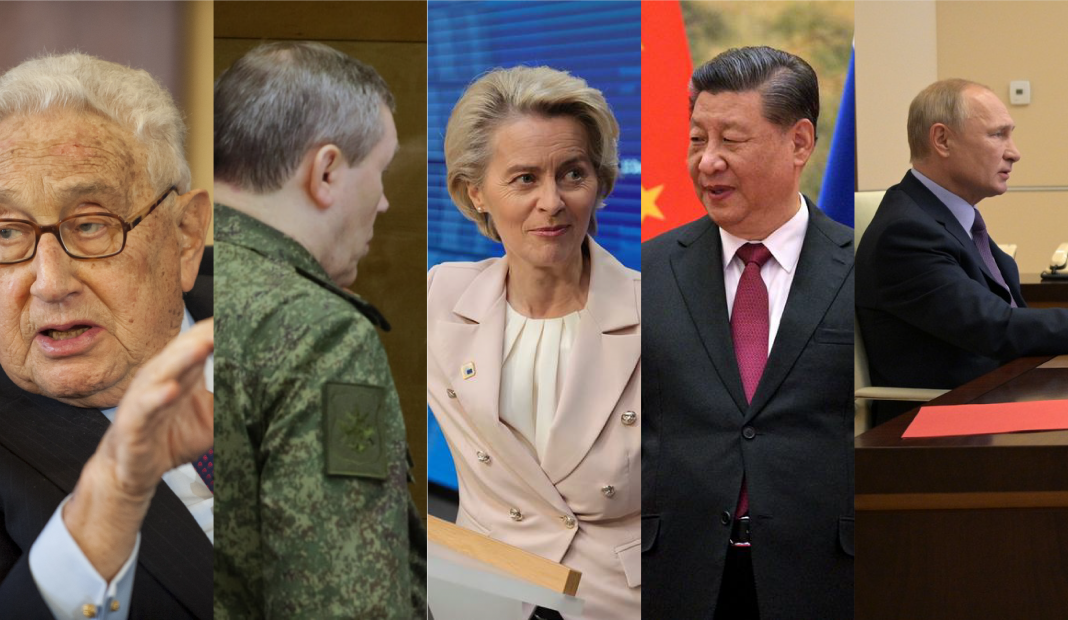This report presents the key events that had an important impact on the political, economic and social processes within Russia.
Based on the results of the past week, the following key events can be summarized:
- Given the adoption of a new package of sanctions by the EU countries, as well as feeling the impact of earlier sanctions, Moscow is trying in every possible way to demonstrate the stability of the economy in the current conditions. Hence some of Putin’s statements at a meeting of the Council for Strategic Development and the previously presented reports of the Head of the Central Bank of the Russian Federation, Elvira Nabiullina. In general, by the end of the year, it becomes clear that the economic factor will become the main threat to the Russian Federation next year. However, if Russia can cope with such challenges, it will retain its position in the geopolitical arena, including concerning Ukraine.
- A series of failures in the so-called “SVO” led to the need for a total reform of the entire defence industry. Putin’s visit to the joint headquarters of the military branches, as well as his return to the position of the sole commander of military operations in Ukraine (earlier, the appointment of Surovikin was seen as a shift in emphasis in the media space), indicates the readiness of the Russian president for radical changes. Most likely, we are talking about both personnel and tactical reforms. Both Gerasimov and Shoigu are at risk.
- Russia is trying to bet on the aggravation of the Western conflict. Growing disagreements between London and Washington (as well as their satellites) play in Moscow’s favour. Sanctions policy increasingly demonstrates the desire of individual states to satisfy their own needs. Hence the compromises or exclusions from the sanctions lists of individuals. The more radical policy of Great Britain, which Poland and the Baltic states actively support, is increasingly colliding with the pragmatism of the United States, Germany, France and a number of Western European states. Shortly, two factors should be expected to strengthen: the escalation of relations between London and Washington and the strengthening of Russian structures in Europe that implement the so-called “soft power” technologies.
During December 12–18, the following topics were the most relevant for Russia:
1. Putin’s visit to the joint headquarters of the armed forces involved in the so-called “SMO”.
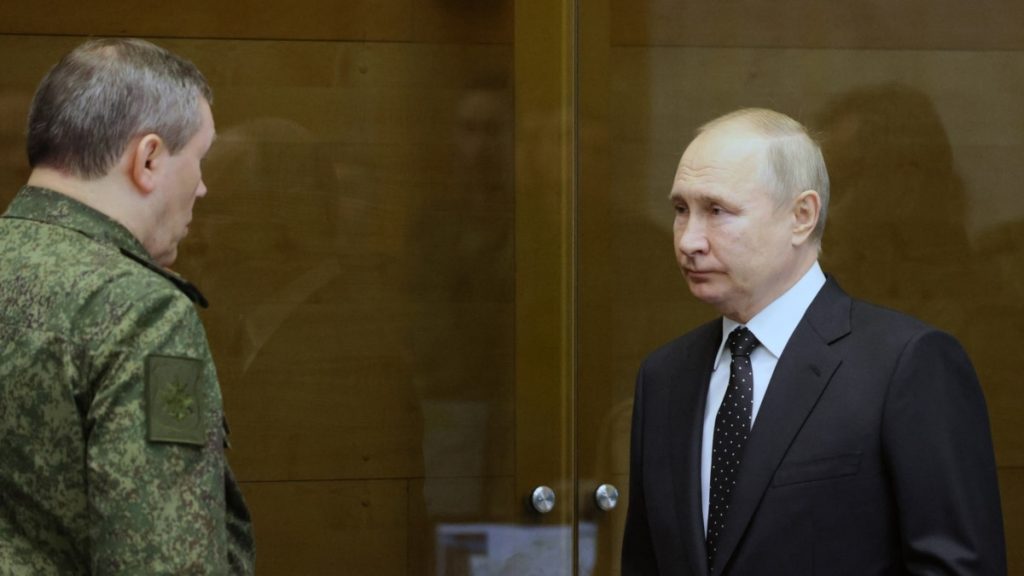
On Friday, December 16, Vladimir Putin visited the joint headquarters of the armed forces involved in the so-called “special military operation”, where he got acquainted with the work of the centre, heard a report on the course of hostilities, and also held a conference and separate meetings with commanders. The message on the website of the administration of the President of the Russian Federation notes that Putin worked at the headquarters throughout the day. According to the photos posted on the network, along with Putin, the entire top leadership of the army and the so-called “special operation” was also present at the headquarters – Defense Minister Sergei Shoigu, Chief of the General Staff Valery Gerasimov and the commander of Russian troops in Ukraine Sergei Surovikin.
Timeline:
- Putin got acquainted with the work of the headquarters, listened to the report, and held a session and separate meetings with the commanders.
- Putin announced that he was ready to listen to proposals for immediate and medium-term actions on the special operation.
- There is no information about Putin’s meetings with the military and their results.
Conclusions and outlooks:
The main goal of the President of the Russian Federation was to show that the “special military operation” was under his leadership and that he was personally in charge of the military campaign in Ukraine. Not Surovikin, Shoigu, Gerasimov, but Putin is the actual commander of the so-called “special operation”. In this, he tries to become like his two idols – Nicholas II and Joseph Stalin, who personally led military operations during the First and Second World Wars. He also makes it clear that he is ready to bear responsibility for the results of the “operation personally”. Kremlin propaganda believes that the personal participation of the President of the Russian Federation in the so-called “SMO” is a serious mobilization factor.
It is also interesting that the presence in the frame of the Chief of the General Staff of the Russian Armed Forces, General Valery Gerasimov, should have dispelled rumours that he had been dismissed or fallen into disgrace.
It is safe to say that rumours about a new reform of the Armed Forces of the Russian Federation are no longer rumours. Against the backdrop of severe defeats of the Russian army in the undeclared war with Ukraine, Putin’s conversation with the military was hardly reduced to a simple showdown, searching for those responsible and distributing instructions. Most likely, each of the military branches involved in the hostilities gave its understanding of miscalculations – to improve the Russian Armed Forces. Hence the substantial military budget for the next year and Putin’s desire to personally communicate with the generals.
In fact, the appearance of Putin among the military on the eve of the New Year shows that Russia is aimed at the fact that the next year can pass in permanent hostilities, not necessarily only in Ukraine.
It is worth noting that just on December 16, a massive rocket attack on the territory of Ukraine was carried out. According to the Russian Defense Ministry, military and energy facilities became its target. On December 16, one of the rockets hit a residential building in Kryvyi Rih. According to local authorities, four people died, including a one-and-a-half-year-old boy. Thirteen people were injured. Among them are four children.
2. EU sanctions against Russia
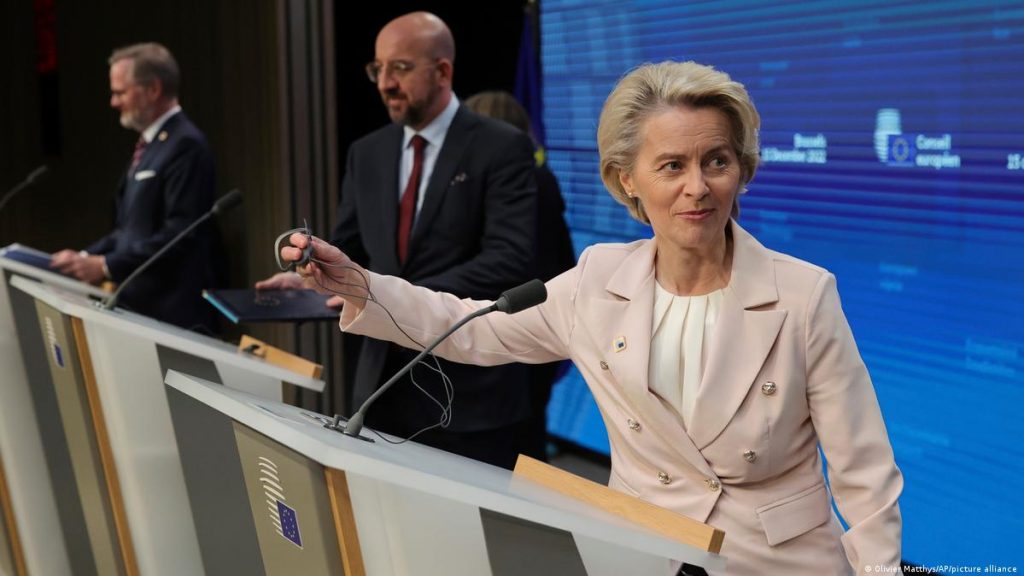
On Thursday, December 15, the European Union announced the 9th package of sanctions against Russia. The new package of sanctions affected almost 200 individuals and legal entities, the energy sector, the economy, the agricultural industry, and the defence.
Timeline:
- On December 15, several media outlets reported that, most likely, the EU will postpone the adoption of the ninth package of sanctions against the Russian Federation because of the position of Poland and the Baltic countries on the export of Russian grain: Warsaw and its allies are in favour of a ban on this export.
- On the same day, it became known that the European Union had finally agreed on the ninth package of sanctions against Russia.
- On December 16, the EU published a new package of sanctions against the Russian Federation.
- The Financial Times reported that Belgium, Germany, Spain, the Netherlands, Portugal and France called on the EU leadership to adjust sanctions on Moscow regarding exemptions for exporting Russian grains and fertilizers, as the current rules make it difficult to supply food to developing countries.
- EUobserver reported that Hungary has ensured that Energy Minister Nikolai Shulginov, Sports Minister Oleg Matytsin and Health Minister Mikhail Murashko are not included in the ninth round of sanctions.
Conclusions and outlooks:
On December 16, the EU published a new package of sanctions against the Russian Federation:
1. Almost 200 additional individuals and legal entities have been added to the list of those whose assets are subject to freezing. These are the Russian armed forces, as well as individual officers and enterprises of the military-industrial complex, deputies of the State Duma and the Federation Council, ministers, Russian proxy authorities in the occupied territories of Ukraine and political parties. This list includes key figures involved in Russian missile attacks on civilians, kidnapping Ukrainian children to Russia, and stealing Ukrainian agricultural products.
2. New export restrictions have been introduced on sensitive dual-use and advanced technologies that strengthen Russia’s military potential and technological improvement. This includes drone engines, camouflage gear, chemical/biological equipment, and electronic components found in Russian military systems on the battlefield.
3. The most severe export restrictions apply to another 168 Russian enterprises closely linked to the Russian military-industrial complex to deprive them of access to sensitive dual-use goods and advanced technologies.
4. The new export bans will cover additional industrial products and technologies such as toy/hobby drones, complex generator sets, laptop computers and computing components, printed circuits, radio navigation systems, radio control equipment, aircraft engines and engine parts, cameras and lenses.
5. Additional bans on transactions for Russian banks: Sanctions have been imposed on three more Russian banks, including a complete ban on transactions with the Russian Regional Development Bank.
6. Additional bans on Russian media: four more Russian channels came under sanctions in the EU.
7. Shutting down Russian access to drones: Direct exports of drone motors to Russia and exports to any third countries, such as Iran, where it is suspected they will be used in Russia, are now restricted.
8. In addition to the already existing ban on investments in the energy sector in Russia, new EU investments in the Russian mining sector will also be prohibited, except for certain raw materials.
Shortly, it will become known how strongly the new package of sanctions will affect the actions of the Russian occupation forces on the territory of Ukraine. At the same time, Western analysts are seriously afraid of further strengthening Russian-Iranian relations against new Western restrictions. Currently, the transfer of various types of missiles by Tehran to Moscow, which can be used to carry out the subsequent massive shelling of the territory of Ukraine, is being actively discussed.
At the same time, internal contradictions between the European Union member states are becoming more and more visible. First, the repeated demarches of Hungary once again led to a softening of the overall sanctions position and allowed three representatives of the Russian government to avoid sanctions.
Secondly, Poland and the Baltic countries could not defend their positions on the issue of food restrictions for Moscow. The “grain deal” is beginning to benefit not only Ukraine but also Russia, which was not part of the plans of Great Britain and the European states oriented towards it. On the other hand, most of the countries of Western Europe (focused on the United States) demonstrate the strengthening of their position and a gradual inclination to seek a compromise on the Ukrainian issue.
The ninth package of sanctions demonstrates the growing differences between the positions of London and Washington, which, unfortunately, can play into the hands of Russia in the long term. Shortly, Europe will look for new levers of pressure on Russia that do not threaten the EU’s internal political and economic situation.
4. China’s decision to deepen relations with Moscow
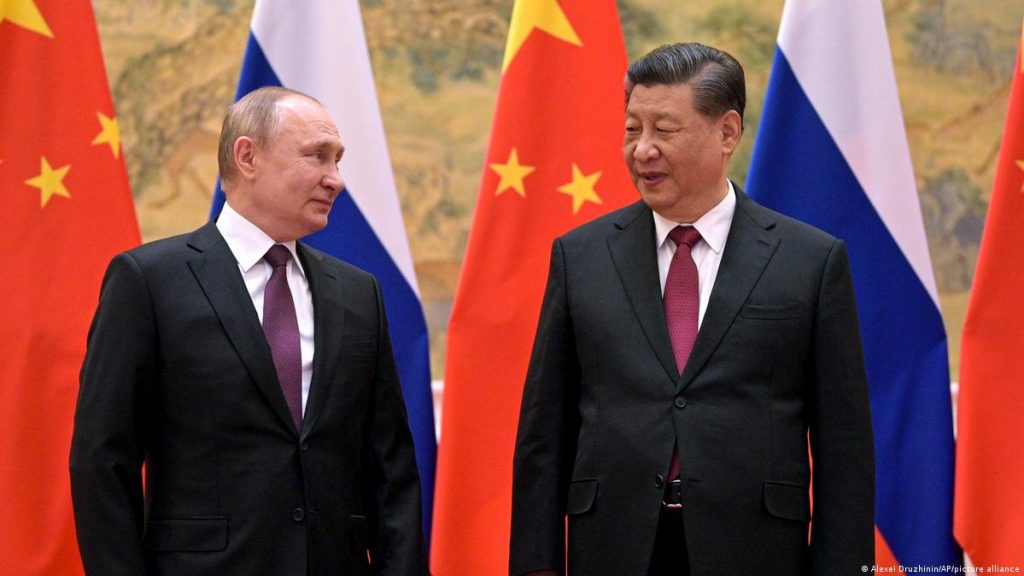
On Thursday, December 15, the US edition of The Wall Street Journal published an analytical article which claims that Chinese President Xi Jinping instructed the government in recent weeks to establish stronger economic ties with Russia. The publication refers to information from anonymous political advisers in the PRC leadership. It claims that Beijing decided to develop trade relations with Moscow, which strengthened in 2022 and became a “lifeline” for it in the face of Western pressure. The WSJ article also claims that China’s “plan” includes:
- Increasing China’s imports of Russian oil, gas and agricultural goods.
- Strengthening the energy partnership in the Arctic.
- Increasing Chinese investment in Russian infrastructure (in particular, in railways and ports).
In addition, Russia and China increasingly make transactions in rubles and yuan to avoid sanctions.
Conclusions and outlooks:
The possible strengthening of economic relations between Beijing and Moscow has long been seen as one of the main threats to the “collective West” and Ukraine. Yet, at the same time, there is currently no official confirmation of such information.
It is important to note that in early 2022, Xi Jinping and Vladimir Putin talked about a “limitless partnership” in relations between the two states. Still, after Russia’s full-scale invasion of Ukraine and the subsequent sanctions pressure on Moscow, China chose to remain neutral and apparently began to doubt the need for close cooperation with Russia. Moreover, official Beijing regularly declares the need to find peaceful solutions to the current situation.
On the other hand, back in mid-November, Russian Ambassador to China Igor Morgulov said in an interview that Xi Jinping could pay an official visit to Moscow in the spring of 2023. Allegedly, the train is scheduled immediately after the session of the NPC, which will distribute the key government posts of the PRC for the next five years. Moreover, as early as 2022, Putin and Xi Jinping are expected to meet online.
The authors of the WSJ material draw attention to one more important thing. Among the reasons for the PRC chairman’s focus on close cooperation with Russia was the “admiration for Soviet values, history and culture, deeply rooted in him from his youth,” which was not shaken by a long period of bad relations between the two countries in 1970-1980, is mentioned. In addition, it is alleged that Xi primarily focused on the Russian political system after coming to power, reducing the influence of the collegiate authority – the Standing Committee of the Politburo of the CPC Central Committee. The article also cites how Xi’s alma mater, Tsinghua University, sent him a report that sceptically described the prospects for the Russian economy. The leader of China wrote the word “nonsense” in its margins.
In this case, it is essential to pay attention to Putin’s regular statements about preserving national history, traditions and cultural landmarks. Hence such an active attempt to protect and preserve the memory of the victory in World War II or defend Soviet values and popularize the contribution of the Soviet Union to the further development of its constituent states. It is also vital to note Putin’s repeated statements lately about Russia’s strategy for a conditional turn towards Asia and the Middle East. In essence, Putin is trying to challenge everything Western: culture, traditions (or their blurring/absence), values and liberal attitudes. Offering, as a counterweight, their own much more conservative model of the world order. If the WSJ material is true, then with this message, Xi Jinping answers Putin, agreeing with his position.
At the same time, it isn’t easy to assess the credibility of the WSJ statements since Beijing rarely uses the tactics of open and straightforward ideas, especially in the field of foreign policy. At the same time, as follows from the recently published data of the GTU of the PRC, from January to November 2022, the volume of Russian-Chinese trade amounted to $172 billion, which is 32% higher than the figures from January to November 2021. At the same time, China views relations with Russia as strategic and vital and wants to expand and deepen economic cooperation.
On the other hand, it is worth paying attention to the many obstacles, which, among other things, are Western sanctions against the Russian Federation. First, despite the escalation in relations between China, the United States and the European Union, their trade and economic relationship level remains much higher than Sino-Russian relations. Cooperation with Russia carries an increased risk of falling under secondary sanctions for Chinese companies exporting to the US and Europe.
Secondly, the difference in the potentials of the economies of Russia and China needs to be more tangible, which makes it difficult for Moscow and Beijing to find areas of cooperation that are equal in rights and satisfy both sides. In addition, Russia and China have very few common value chains.
In general, despite the mention in the WSJ material about the factor of Xi Jinping’s attitude towards Russia, it is necessary to consider that China always prefers pragmatism over sentimentality. The most promising area in Chinese-Russian relations for Beijing remains the Arctic and the supply of cheap energy resources. At this stage, Russia’s position, which has been significantly weakened due to the current failure of the plan for Ukraine, is forcing Putin to accept any conditions from China and not count on expanding trade and economic relations.
At the same time, for Beijing and Moscow, it is strategically important to develop cooperation in the field of defence and the military-industrial complex. This issue was repeatedly discussed until 24 February. At the same time, some sources say that the resumption of such plans may occur as early as the spring of 2023. But the main condition of China for Russia is the solution to the Ukrainian issue and the end of hostilities.
4. Article by Henry Kissinger

On Friday, 16 December, the British weekly Spectator published an article by former US Secretary of State Henry Kissinger titled “How to Avoid a New World War”. In the article, Kissinger reiterates his call for talks between Kyiv and Moscow and points to a turning point in the war in Ukraine that must be seized to reach a negotiated settlement and avoid an escalation that could lead to global catastrophe.
Key theses:
- “I have repeatedly stated that I support the allied countries’ military efforts to repel Russian aggression in Ukraine. But the time is right to build on the strategic changes already achieved, integrating them into a new structure to achieve peace through negotiations.”
- “The peace process aims twofold: to reaffirm the freedom of Ukraine and to define a new international security system, especially for Central and Eastern Europe. Ultimately, Russia must find a place in that order. But, unfortunately, the preferred outcome for some is Russia rendered powerless by the war. I disagree”.
- “For more than half a century, Russia has made a decisive contribution to the global balance and balance of power. Its historical role should not be underestimated. Russia’s military failures have not eliminated its global nuclear capability, allowing it to threaten escalation in Ukraine. Even if this potential is reduced, the collapse of Russia or the destruction of its ability to conduct strategic policy could turn its territory, spanning 11 time zones, into a contested vacuum.”
- “Competing groups may decide to settle their disputes through violence. Other countries may try to expand their claims by force. These dangers will be exacerbated by thousands of nuclear weapons, making Russia one of the world’s two largest nuclear powers.”
Conclusions and outlooks:
It is important to note several vital factors emerging from this article. Firstly, Henry Kissinger is not the first time he declares the need for a more pragmatic approach on the part of the West to Russia, as well as the need for a negotiation process. However, in this material, he needs to say on what basis an agreement to end the war can be reached. In his article, he proposes to bring the issue of ownership of Crimea and, possibly, Donbas to a referendum.
Secondly, Kissinger’s ideas are increasingly beginning to find support among the political leaders of several European states, as well as part of the political elites in the United States. This can be seen both in several statements by European leaders (most often representatives of Western Europe) and in states’ positions regarding the sanctions policy or the allocation of financial and military assistance to Ukraine. Of course, such ideas are not predominant, but at the same time, they are considered acceptable.
Thirdly, Kissinger’s ideas are more focused on the Western consumer than the Ukrainian one. His main message is not to renounce Crimea or Donbas (as an experienced geopolitician, Kissinger views any territory from the point of view of strategic importance, not ideological or patriotic views) but in an attempt to convey the thesis about the need to maintain a balance of power in the world, which is impossible without Russian factor. This idea is absolutely understandable to politicians in Washington, but simultaneously, it is alien to the UK, which follows completely different geopolitical principles.
Fourth, at 99 years of age, Henry Kissinger is unlikely to pursue his political ambitions or gain even wider popularity. Yet, in his statements, he is not afraid of reputational risks, allowing him to voice unpopular ideas. In this case, it is important to understand that such materials can be published both to test public opinion and to prepare the ground for forming new meanings in public.
5. A meeting of the Council for Strategic Development
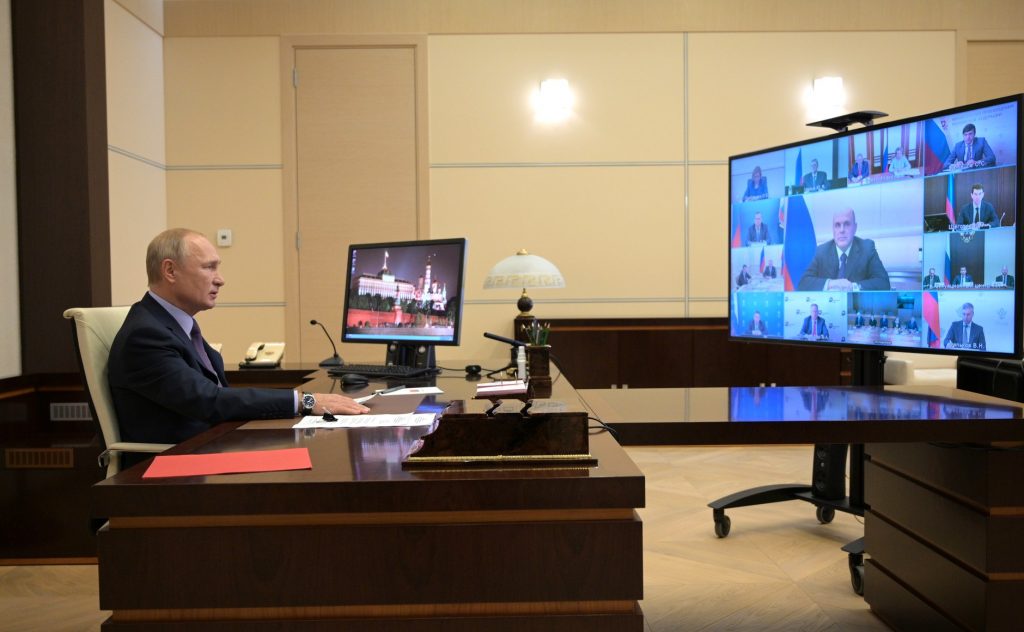
On Thursday, December 15, Vladimir Putin chaired a meeting of the Presidential Council for Strategic Development and National Projects via videoconference. Such a meeting is held annually in mid-December to sum up the results of the implementation of the national goals of the Russian Federation in accordance with the 2030 strategy. As at other events, Putin has identified technological development as one of the most priority topics for discussion.
Key theses:
- “As you know, unprecedented sanction aggression has been deployed against Russia. In a short time, it was aimed at essentially crushing our economy through the robbery of our foreign exchange reserves to collapse the national currency – the ruble – and provoke destructive inflation.
- “The price level in Russia – after a serious surge in March-April – has practically not changed since May, and the Russian ruble has become one of the strongest currencies in the world since the beginning of the year”.
- “Russia’s public finances remain stable. According to the results of January-November of the current year, the federal budget was executed with a surplus of 560 billion rubles and the consolidated budget with a surplus of one trillion 451 billion rubles.”
- “We will maintain a responsible financial and macroeconomic policy, which guarantees in the next three years not only the full financing of social obligations but also the solution of new tasks facing the country.”
- “Despite the sanctions, deliveries of basic goods from Russia to the EU increased by 1.5 times in 9 months”.
- “Electronic platforms for trading Russian energy resources for the West can be created in the next three months.”
- “Russia will wind down the mechanisms of subsidized mortgages, but will do it smoothly.”
- Putin outlined six main tasks in the economy for 2023:
- bringing interaction with key partners to a new level, eliminating restrictions in logistics and finance, increasing foreign trade and investment interaction;
- strengthening technological sovereignty and moving towards leadership in the main areas in this area, outpacing the growth of the manufacturing industry;
- ensuring financial sovereignty, the Russian financial system must meet the needs that were previously covered by Western sources of funding;
- advance development of infrastructure, it is necessary to put in order regional highways, housing construction and improvement of living conditions of citizens;
- (most importantly) the reduction of poverty and inequality, the growth of real incomes of citizens, the decline of the gap in the potential of regions, and the key to increasing revenues is high economic growth and new well-paid jobs;
- protection of motherhood and childhood, support for families and saving the people.
- “A person’s successful future depends on quality education and diversified development. Such opportunities must be provided everywhere, in any region of our country.”
- “Russia will definitely achieve the restoration of new territories; in new regions, all-Russian social security standards will be introduced.”
- “By 2030, in new regions, it is necessary to reach the all-Russian level in all indicators”.
Conclusions and outlooks:
In fact, Putin’s two actions – his speech at a meeting of the Council for Strategic Development and a conference of the Joint Forces – sent more messages than in any annual Address (which was not made public in 2022). First, Putin devoted his speech to social and economic issues at the Council for Strategic Development. This is Putin’s traditional “horse” (not mandatory, as the famous “May Decrees”). But at the same time, it gives the impression that “the leader cares about his people.”
In the context of hostilities, Putin’s speech is intended to have a positive effect, showing that despite the factors of war and Western sanctions, the Russian leadership is thinking about the growth of the citizens’ welfare, while a picture of Ukrainian cities deprived of heat and electricity is presented. This is a contrast, thanks to which the Russians should understand how lucky they are with the president and what a blessing it is that “fascists” and “NATO puppets” are not in power in Russia.
Another goal: is to demonstrate to their people that Western sanctions are practically non-existent, and Russia has enough internal reserves to ensure stable development not thanks to, but despite, the West. The main messages are: we are strong, we survived, Putin is not mistaken, the West miscalculated, and we are developing.
Shortly, many such events may appear, the purpose of which is to instil courage and confidence in the Russians against the backdrop of far from cloudless forecasts of economists and military miscalculations during the “special military operation”.

